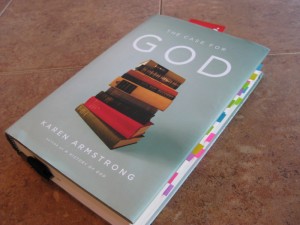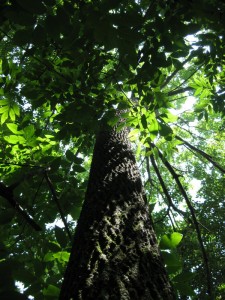In The Case for God, Karen Armstrong talks about “this hinterland between rationality and the transcendent.” It’s the place where our thought, ideas, and intellectual life have taken us as far as they can, and we need a different kind of knowing in order to experience God.
The intellect is part of our spiritual path. It carries us past the limited notions of God that constrict our assumption of what religious life entails. It brings the fresh breeze of new ideas, which prepare us to see what we have missed. It shows the limitations we have put on God, and the experience of God, of which we were unaware.
But we can’t live into a new faith, or any faith, by intellect alone. An expanded idea of God doesn’t have much impact on who we are or how we live unless we develop a connection to God—asking, seeking, waiting, inviting, listening. In Armstrong’s words, “Religious insight requires not only a dedicated intellectual endeavor to get beyond the ‘idols of thought’ but also a compassionate lifestyle that enables us to break out of the prism of selfhood. . . . It require[s] kenosis, ‘negative capability,’ ‘wise passiveness,’ and a heart that ‘watches and receives.’”
Armstrong’s book mirrors this process. It summarizes and analyzes a long and complex history of how people have understood God. She places our current theological thinking in the context of history, the better to see how we arrived in this place and how best to move forward. Yet her work points to an understanding of God beyond definition or certainty, experienced in mystery, expressed in poetry and in love. It’s a book about what cannot be expressed in books.
Ideas are important; I thrive on them. Yet at a certain point ideas no longer satisfy. It’s like driving to the mountains to go hiking. At some point, you have to get out of the car.
I experience another kind of truth in the light turning gold as the sun rises, the purr of a cat under my hand, the voice of a loved one. These are openings to the sacred, to the sense of being deeply and truly alive.
I’m asking myself whether I’ve spent too much time reading theology and not enough reading poetry. Where is the balance between intellect and experience? Do you see one as more credible, or trustworthy, than the other?



